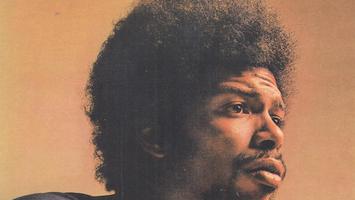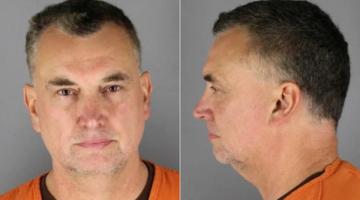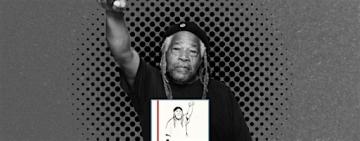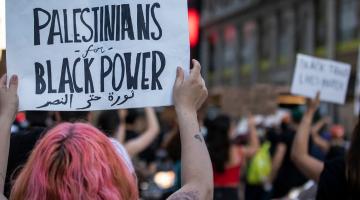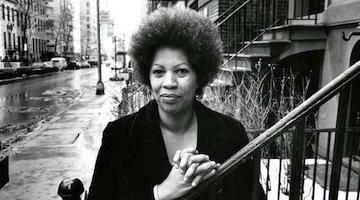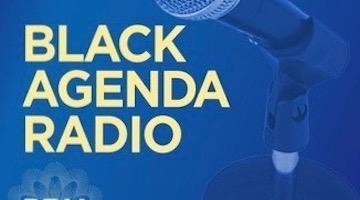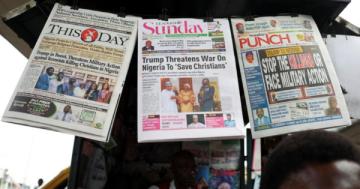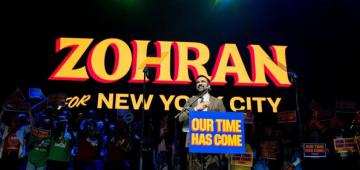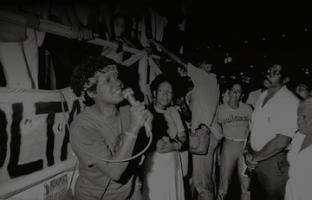Brittany Friedman Carceral Apartheid: How Lies and White Supremacists Run Our Prisons
In this series, we ask acclaimed authors to answer five questions about their book. This week’s featured author is Brittany Friedman. Friedman is assistant professor of sociology at the University of Southern California. Her book is Carceral Apartheid: How Lies and White Supremacists Run Our Prisons.
Book Summary (from the publisher):
It is impossible to deny the impact of lies and white supremacy on the institutional conditions in US prisons. There is a particular power dynamic of racist intent in the prison system that culminates in what Brittany Friedman terms carceral apartheid. Prisons are a microcosm of how carceral apartheid operates as a larger governing strategy to decimate political targets and foster deceit, disinformation, and division in society.
Among many shocking discoveries, Friedman shows that, beginning in the 1950s, California prison officials declared war on imprisoned Black people and sought to identify Black militants as a key problem, creating a strategy for the management, segregation, and elimination of these individuals from the prison population that continues into the present day. Carceral Apartheid delves into how the California Department of Corrections deployed various official, clandestine, and at times extralegal control techniques—including officer alliances with imprisoned white supremacists—to suppress Black political movements, revealing the broader themes of deception, empire, corruption, and white supremacy in American mass incarceration. Drawing from original interviews with founders of Black political movements such as the Black Guerilla Family, white supremacists, and a swath of little-known archival data, Friedman uncovers how the US domestic war against imprisoned Black people models and perpetuates genocide, imprisonment, and torture abroad.
Roberto Sirvent: How can your book help BAR readers understand the current political and social climate?
Brittany Friedman: We are currently in a world where chaos is being overtly weaponized as a way to get people to shut down, to feel overwhelmed like they can't function, like they can't organize or even many people report having difficulty getting out of bed because of the onslaught of violent updates that are in the news everyday now. These updates showcase one human-made disaster after the other, which are caused by a commitment to greed and lies.
Humanity is witnessing what the collapse of an empire looks like and when any empire is on the cusp of falling, all of its evils and darkness are kicked up for the world to see.
When the empire is exposed for all to see, especially for those who were once naysayers, often governments will clamp down and use obviously authoritarian techniques such as deception, surveillance, and containment.
My book Carceral Apartheid: How Lies and White Supremacists Run Our Prisons traces how governments strategically use labels for these authoritarian ends. Labeling people as dangerous enemies in order to seize and contain them is a strategy as old as human civilization, but its institutionalization within society as an official, extralegal, and clandestine control regime does have particular roots in European colonization, which I examine through the eyes of prisons. Prisons are a microcosm of society and it is through an uncovering of the social structures that run them, that we see how our society is essentially a massive colonial prison designed to keep everyone asleep.
Through prisons we see the long-term strategies that have been used in our society to decimate the truth and human lives in return for monetary gain.
What do you hope activists and community organizers will take away from reading your book?
First, validation–that the darkness people perceive about the world is true and not an exaggeration. There’s so much effort through external pressures such as media outlets and politicians, and institutional pressures, such as education or communal networks that can work together to make truth-tellers feel they should shrink their voice. However, our voice is our greatest liberation, and I want people to feel this when reading Carceral Apartheid.
Second, hope–that even though human beings have survived the horrors of carceral apartheid for generations, they continue to successfully organize for freedom. Throughout its pages, my book documents government efforts to destroy entire communities, yet we also see resilience, strategy, brilliance, and hope to not only survive, but triumph.
And finally, to this point–I believe we come into this life following a long line of liberators before us, meaning we never walk alone. The idea of walking alone is one of the greatest lies we are fed because isolation, whether through solitary confinement or convincing people they are alone, is an effective tool against organizing. So, I hope people takeaway the true fight that remains within humanity to resist, even in the face of the rising darkness we continue to witness.
We know readers will learn a lot from your book, but what do you hope readers will un-learn? In other words, is there a particular ideology you’re hoping to dismantle?
Many things, but one I feel compelled to say now is that I hope readers will un-learn the shame they have been forced to feel for speaking out when something doesn’t feel or seem right. I hope people un-learn this shame that acts as a form of social control to keep people within the very societal norms that contribute to the maintenance of carceral apartheid as a governance regime. History has proven time and again that it is often those who are ridiculed, called crazy, ostracized, exiled, and otherwise deemed a “black sheep” that are spot on about the inner workings of the society’s they are a part of. This shame acts as a silencer because people and institutions lose their power once the truth is revealed about them.
A nation’s jails, prisons, asylums, and cemeteries are often filled with people who dared to be different, see clearly, and speak truth to power. Memorials too – but there are many people that aren’t commemorated with national holidays or in books and speeches. And even more everyday heroes that may never receive public recognition but continue to bravely tell the truth.
I hope people see they are not alone and that many people feel this shame and as it is a throughline in history. Unlearning the shame projected onto truth-tellers and healing the collective and individual trauma that comes from surviving generations of “witch hunts” aimed at decimating them, is a paramount part of the journey. Once you have conviction for yourself and release this shame, no one can tell you who you are or use your fear of acceptance against you.
Which intellectuals and/or intellectual movements most inspire your work?
A truth-teller that inspired me to write “Truth-Telling as Method” at the end of Carceral Apartheid is Ida B. Wells, a Black feminist freedom fighter. Even in the face of fear and outside projections, she continued to bear witness to the darkness of this world, reporting the truth and analyzing her findings to help us make sense of it all. Ida B. Wells is a champion of the need for investigative methods to be a standard means of revolutionary method and praxis–a true example of what it means to hold the light in the face of profound darkness.
A mentor and friend of mine, Brook Albrigo, who works as an energy healer in SoCal told me recently “witness, don’t absorb” when speaking on the horrors of this world. I take this to mean don’t absorb the greed, lies, and control the world is currently kicking up. Brook advised me that it is for us to witness and reflect back like a mirror but not absorb or reproduce. Remain steadfast in your mission which is one of light.
I believe Ida B. Wells embodied this as an intellectual and for that, she has inspired me for many years and will for many to come. It is why her life story, and writing should be learned by anyone called to use their gifts in the pursuit of freedom for all.
Which two books published in the last five years would you recommend to BAR readers? How do you envision engaging these titles in your future work?
Manifestos have a long history in the feminist literary sphere, offering a place for channeling our fire into honest dialogue and social critique. In a world that has tried to violently silence woman and rewrite history from the vantage point of hetero white men, the manifesto remains a critical tool of liberation. Two works in this area currently on my must-read list for this year are Hood Feminism: Notes from the Women that a Movement Forgot by Mikki Kendall and The Feminist Killjoy Handbook by Sara Ahmed. Both books have been on my radar for some years, but I haven’t yet had a chance to fully dive in and I’m excited to. I am inspired to deepen my connection to the genre of testimonio and feminist manifestos, and these two books in particular are written by feminists of color. While there are indeed allies, often as feminists of color we can find ourselves organizing at odds with white feminists, who refuse to acknowledge the salience of race, ethnicity, or colonialism.
In my future work, I will continue working in the Black feminist tradition to write a book-length manifesto. I am inspired by this genre and while this shows in how I wrote the prose of Carceral Apartheid, my next book will push the boundaries even further.
Roberto Sirvent is the editor of the Black Agenda Report Book Forum.


